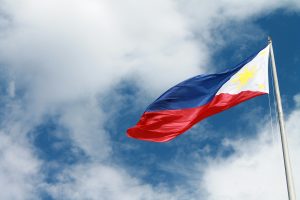Weeks have now passed since U.S. House Speaker Nancy Pelosi’s controversial visit to Taiwan. Christopher Twomey correctly analyzed that the visit triggered a “Fourth Taiwan Crisis,” given the deteriorating state of Sino-American relations. Whether either side can claim victory over the other remains uncertain.
What is clear, however, is that the future seems bleak when one looks at the Indo-Pacific chessboard. The 1992 Consensus, or One China Principle, no longer enjoys the support of the relevant parties due to the changing domestic politics in China and Taiwan as well as the major power competition between China and the United States. This is where anxieties lie in Southeast Asia. Countries in the region mostly profess to disagree on the “with us or against us” principle in foreign policy. The Association of Southeast Asian Nations (ASEAN), a few days after Pelosi’s visit, released a statement calling for “maximum restraint” and urging all parties to “refrain from provocative action.” Most ASEAN member states also reiterated their support for their varying interpretations of the One China policy.
Hedging, in short, seems like a favorable strategy in the current circumstances, especially for small powers. The principle of hedging, however, is less prudent in strategic practice. While hedging applies mostly to peacetime and looks good on paper, it should not be misconstrued as neutrality, especially during wartime.
This is accurate at least for some states like the Philippines, which has risen stealthily to the status of middle power. Since 2018, the Lowy Institute’s Asia Power Index has consistently depicted the Southeast Asian nation as a middle power, specifically in terms of its defense networks and diplomatic influence, though it was only this August that Manila’s Department of Foreign Affairs (DFA) officially acknowledged the country’s middle power status.
As a middle power, the ideal course of action for the Philippines is to uphold the 1992 Consensus. However, strategic realities suggest that the Fourth Taiwan Crisis will be a “long crisis,” and could in time become a possible flashpoint for a direct Sino-American war over the Indo-Pacific. Taiwan is geographically proximate to the Philippines, separated just by the Luzon Strait. This makes it critical for the country’s security establishment to imagine the possible fallout of a Chinese invasion of Taiwan.
The puzzle is whether the Philippines’ middle power status will pass the litmus test of the long crisis. Philippine President Ferdinand Marcos Jr. rightly said that Pelosi’s visit to Taiwan did not intensify China-Taiwan tensions but only demonstrated how tense they already are. So far, the DFA made the right choice in releasing only a brief statement regarding the issue, stating that diplomacy and dialogue must prevail. Furthermore, National Security Adviser Clarita Carlos has argued that the country should stay neutral. However, acknowledging and avoiding the long crisis is only part of the Philippine government’s job; it also needs to communicate its preferred regional order and act in support of bringing this about.
With time against the Philippines, the government must play to its strengths as a middle power, namely, its defense networks and diplomatic influence.
The country’s outsized diplomatic influence comes as no surprise, given that it is a co-founder of key international organizations like the United Nations (U.N.) and ASEAN. But its legal victory in the 2016 arbitral ruling against China’s expansive claims in the South China Sea made its diplomatic influence even more apparent. In 2020 and 2021, then-President Rodrigo Duterte told the U.N. General Assembly that the ruling could help contribute to the strengthening of the rules-based international order. The Philippines needs to be active diplomatically and express its desire to create a viable regional order aside from hoping that both parties cease their hostile relations. One good policy guidance is to keep the formal channels open both to China and the U.S., as well as maintaining informal channels with Taiwan.
The Philippines’ defense networks give the country the ability to strengthen the credibility of the U.S. security umbrella over the region, particularly through the longstanding Mutual Defense Treaty (MDT) with Washington. Marcos, in his recent exchange with U.S. State Secretary Antony Blinken during his visit to Manila last month, expressed his support for the treaty, saying that it was in “constant evolution.”
Although constitutional processes are required to activate Manila’s treaty obligations under the MDT, adverse systemic changes, such as a long crisis in the cross-Strait, could provide apparent reasons for the treaty’s activation. This is why the Philippine Department of National Defense has hinted at the MDT as a policy option should the tension over Taiwan ignite into conflict. It also raises the possibility that Filipino personnel will be sent to serve with their American counterparts.
At the end of the day, the Philippines’ best change of navigating the current tensions over Taiwan begin with Manila dropping its small power narrative and seeing the long crisis as an opportunity to strengthen its middle power status. Easier said than done, of course. After all, strategic affairs are all about choices and tradeoffs. But it is a high time for the Philippines to turn the current crisis into an opportunity to calibrate its statecraft for the turbulent years to come.

































